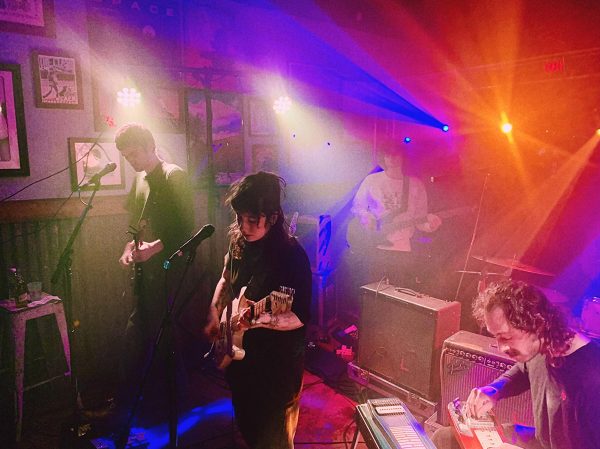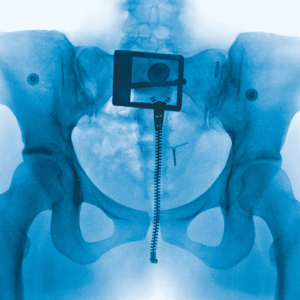REVIEW: ‘Guardians of the Galaxy Vol. 3’ encapsulates the heart of the trilogy in a touching final adventure
In a bittersweet and satisfying conclusion to the beloved trilogy, “Guardians of the Galaxy Vol. 3” (“Vol. 3”) follows the events of “Thor: Love and Thunder” as Peter Quill (Chris Pratt)—a.k.a “Star-Lord”—and the rest of the team race to save Rocket’s (Bradley Cooper) life and come to terms with their ever-shifting group dynamics.
The third and final installment in the “Guardians” trilogy received much anticipation over the years, as the core team continued to shift and grow in subsequent non-Guardians MCU films. From the loss (and later, return) of half the universe in “Avengers: Infinity War” and “Avengers: Endgame” to the introduction (and later, parting) of Thor, the Guardians of the Galaxy and their fanbase experienced many twists and turns during the six years between the second and third film. However, the end result remains a triumph of found family, with the original Guardians—Peter Quill, Rocket, Groot (Vin Diesel), Gamora (Zoe Saldaña), and Drax (Dave Bautista)—along with their conglomeration of foes turned allies—Nebula (Karen Gillan), Mantis (Pom Klementieff), and Kraglin (Sean Gunn)—working together in the ultimate galaxy-saving adventure.
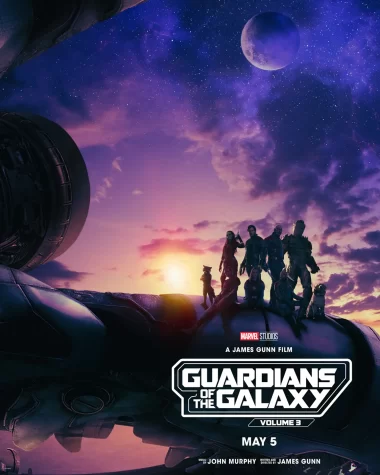
James Gunn wrote and directed all three movies in the “Guardians of the Galaxy” franchise, contributing to the vibrant consistency in characters and story throughout the trilogy. “Vol 3” marks the end of Gunn’s time in the MCU as he embarks on a new journey as co-CEO of DC Studios. Despite now reigning over MCU’s archrival, Gunn’s last contribution to the Guardians of the Galaxy holds the same quality as earlier movies.
Gunn also greatly contributed to the musicality of the Guardians franchise. Previous Guardians films are well-known for their eclectic soundtracks, featuring older hits like “Hooked on a Feeling” by Blue Swede and “Mr. Blue Sky” by Electric Light Orchestra. The final installment continues this harmonious trend. Awesome Mix Vol. 3 brings the Guardian’s music tastes into the 21st century with songs like “Creep (Acoustic Version)” by Radiohead and “Dog Days Are Over” by Florence + The Machine. The soundtrack remains true to its 1970s roots with “Come and Get Your Love” by Redbone, reminiscing on the older vibe of the previous movie playlists. Music also plays an important role in the story itself, with Peter Quill yet again putting his life on the line for the sake of music and friendship.
Unlike many contemporary Marvel Cinematic Universe (MCU) films, “Vol. 3” strays from catering to eager fans and is unafraid to make universe-shattering decisions in order to stay true to the characters and the world they inhabit. Rocket is notably absent from the present action of the film, as his story is largely told through a flashback-style narrative while his life hangs in the balance. What sets “Vol. 3” apart from previous “Guardians” films is a wider focus on other members of the Guardians cast. “Guardians of the Galaxy” and “Vol. 2” follow the main group but focus primarily on Peter Quill and his complex parental relationships. “Vol. 3” remains dedicated to providing Peter Quill with closure while also highlighting the potential of all the Guardians.
Boasting a large cast of characters, it would be easy for many of the beloved galactic heroes to drift unnoticed into space during the two-hour and twenty-nine-minute runtime. In “Vol. 3,” Groot is the only character that suffers this fate following his triumphant spotlight during “Guardians of the Galaxy Vol. 2” (“Vol. 2”), as his significance noticeably lessens to make room for other characters in the third film. Each character receives a proper and satisfying sendoff that expounds upon several films worth of character development. The ending is not necessarily the one the characters want or expect; it is one they have worked for and deserve.
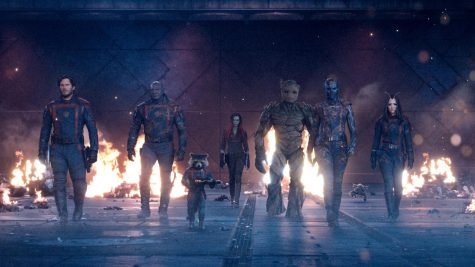
“Vol. 3” explores both Peter Quill and Rocket’s different experiences with grief. Rocket stood out previously as a fan favorite for his clever one-liners, bond with Groot and mysterious past. Rocket’s story delves heavily into his history of abuse and regret over lost friendship, adding gravity to his trust in the bond he built with the Guardians. Some scenes may be disturbing for young viewers, as a young Rocket is tortured alongside several other animals. Rocket’s bond with the fellow members of his experimentation group is sweet, making their brutal end all the more gut-wrenching. The intense trauma and manipulation Rocket experiences at the hands of the film’s main villain, The High Evolutionary (Chukwudi Iwuji), contributes to Rocket’s experience in masking grief. “Vol. 3” is a heavy one for Rocket fans, though his bravery and determination prove him to be one of the MCU’s best heroes.
Animal cruelty and the impact of unethical experimentation are both thoroughly explored through the gross display of power by The High Evolutionary. Unlike previous MCU villains with a potential path for redemption, like Loki or Scarlet Witch, The High Evolutionary is completely evil. Manipulative and cruel, he uses his supposed moral superiority to slaughter millions of his own innocent creations in the quest for the perfect society. Rocket and the other Guardians are forced to reckon with the consequences of The High Evolutionary’s practices and recognize the inherent value of all creatures in their quest to end his reign of tyranny.
Peter Quill, on the other hand, continues to process the loss of his mother from the first film, in addition to the death of his timeline’s Gamora. Despite being sacrificed in “Avengers: Infinity War,” Gamora remains an important part of the film. However, she is not the Gamora fans grew to know and love throughout the course of the MCU thus far, a fact made very clear during her time onscreen. This Gamora did not join the Guardians of the Galaxy and has no established relationship with Peter Quill or the others, much to his chagrin. Though some viewers may be disappointed by the conclusion of Gamora’s story, they can rest easy knowing she found her happy ending, even in the most unlikely of circumstances.
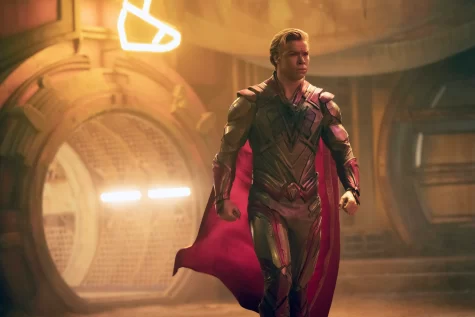
Another puzzling addition to the franchise is Adam Warlock (Will Poulter). Adam Warlock was previously referenced in the end credits of “Vol. 2.” “Vol. 3” marks his onscreen debut as one of the Sovereign, a creation of the film’s main antagonist tasked with finding Rocket and destroying the Guardians. While Adam Warlock grows from a youthful killer to a well-meaning ally, the golden Sovereigns have little individual significance in the overall story arc and could easily be replaced by previously existing characters. It remains to be seen whether Adam Warlock–who has had a complicated yet prominent intergalatic story arc since his comic introduction in 1967–will appear in future MCU films, as all the members of the Guardians of the Galaxy are untethered from the original trilogy and up for the interpretation of future directors.
Aside from occasionally obvious CGI outside Orgocorp, heavy yet effective reliance on the miscommunication trope during the setup for the final battle and an out-of-character dialogue moment from Groot, “Guardians of the Galaxy Vol. 3” is one of the greatest films to come from the superhero conglomerate in recent years. Primarily focusing on the friendships at the core of the franchise, “Vol. 3” is a hopeful return to the quality of MCU movies that fans have long sought to rediscover.
“Guardians of the Galaxy Vol. 3” is currently in theaters and is expected to be released on Disney+ by the end of 2023. With incredible rewatch-potential and a story full of heart, “Vol. 3” acts as a fulfilling end to a beloved story, sure to have fans hooked on the series once again.








